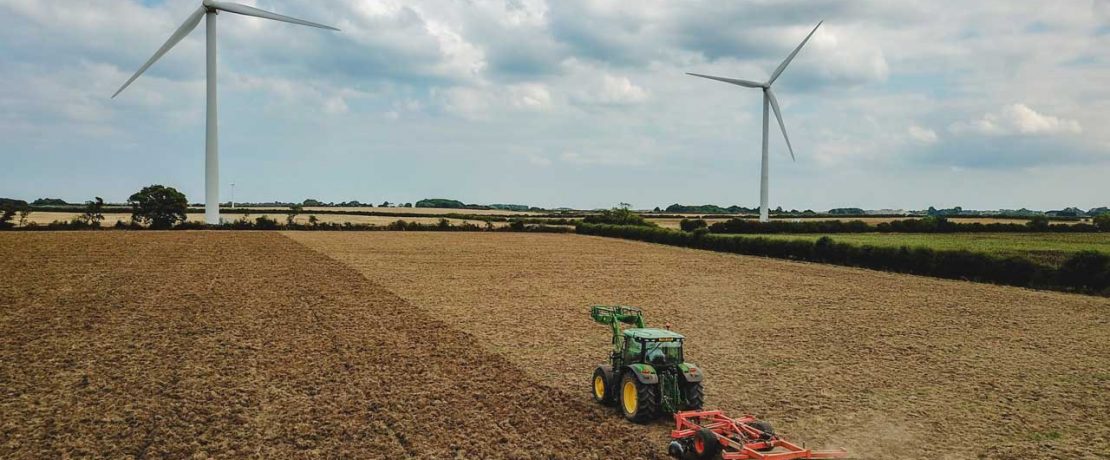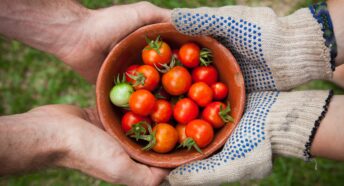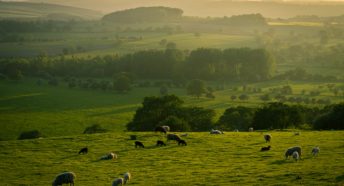Government have shared post-Brexit farming vision.
As the government announces a huge shift in the way that UK farming is funded, we comment on the good – and the gaps – in these sweeping changes.
As Environment Secretary George Eustice unveils the Path to Sustainable Farming roadmap, we at CPRE are delighted to recognise some of the work we’ve done over a period of many years bearing fruit.
So while we know that there will be more work to do, and so much depends on ministers getting the delivery and detail of the new policy right, we’re also celebrating some of the themes that the new roadmap covers.
For example, it’s great to see an emphasis on making sure that restoring the nature in our landscapes, which has been harmed by many factors and eroded to a point of crisis that only stands to be worsened by the climate emergency, is central within the new plans.
And within this, it’s especially good to see the recovery of our degraded soils prioritised, and full recognition that the climate crisis is an existential threat that we must meet head-on.
The earth beneath our feet
Our chief executive, Crispin Truman, celebrates the overdue focus on soils, too, saying that while ‘healthy soils are the fundamental building blocks of agriculture’, they’ve been ‘an afterthought for too long’.
CPRE has long been aware of the power of the earth beneath our feet. A focus on it now will be essential if the government is committing to aggressive action on helping nature to recover and really tackling the climate crisis.
As Crispin puts it:
‘By protecting and regenerating our soils, we can produce more healthy food, prevent erosion, cut river pollution and carbon losses, and invite nature back to every farm. That’s why the government must support farmers to better understand, assess and manage their soils and encourage nature-friendly farming across all of their land.’
Farming futures
And while we at CPRE welcome new measures to make farming work better for the environment, we’re also mindful it’s not an easy time to be a farmer. The very future of farming in our country is at risk, despite willing and enthusiastic young people who are keen to make a life of this most skilled of trades.
Crispin warns that:
‘The future of farming as a diverse and innovative sector is being threatened by declining opportunities for new and young farmers to start their own business on a council farm. Council-owned farms are being sold off at an accelerating pace.’
The new roadmap outlines a means for new farmers to get a foot in the (barn) door – a New Entrant Support Scheme, which is great to see. At CPRE, we’ve also seen amazing results and inspirational farming from the dwindling number of farms that are still run by councils, often called county farms.
And so it will come as no surprise that, whilst we recognise great value in the New Entrant Support Scheme, we’re still urging the government to keep supporting the amazing local resources that county farms can represent.
Crispin says:
‘It’s more important than ever that the government reinvests in council farms to allow new and young farmers to get a foot in the door. Investing in the next generation of farmers is critical if we are to claim a brighter future for farming after we leave the EU.’
A moment of opportunity
The new roadmap includes some hugely exciting steps forward. Seeing regard given to nature recovery and climate change in the government’s plans for what farming will look like in a post-Brexit world is a success story. We’re delighted to see that the CPRE voice, calling for action on soils and much much more, has been heard.
Crispin celebrates the announcement, saying that the document ‘could be a watershed moment for farmers, countryside communities and the climate and nature emergencies’.
And, while we wait to see the next steps for these promising plans for farming, we at CPRE will keep working hard for rural communities. Want to help out? Become a member – it’ll also get you access to our award-winning publications packed with stories from the worlds of farming and countryside life.






